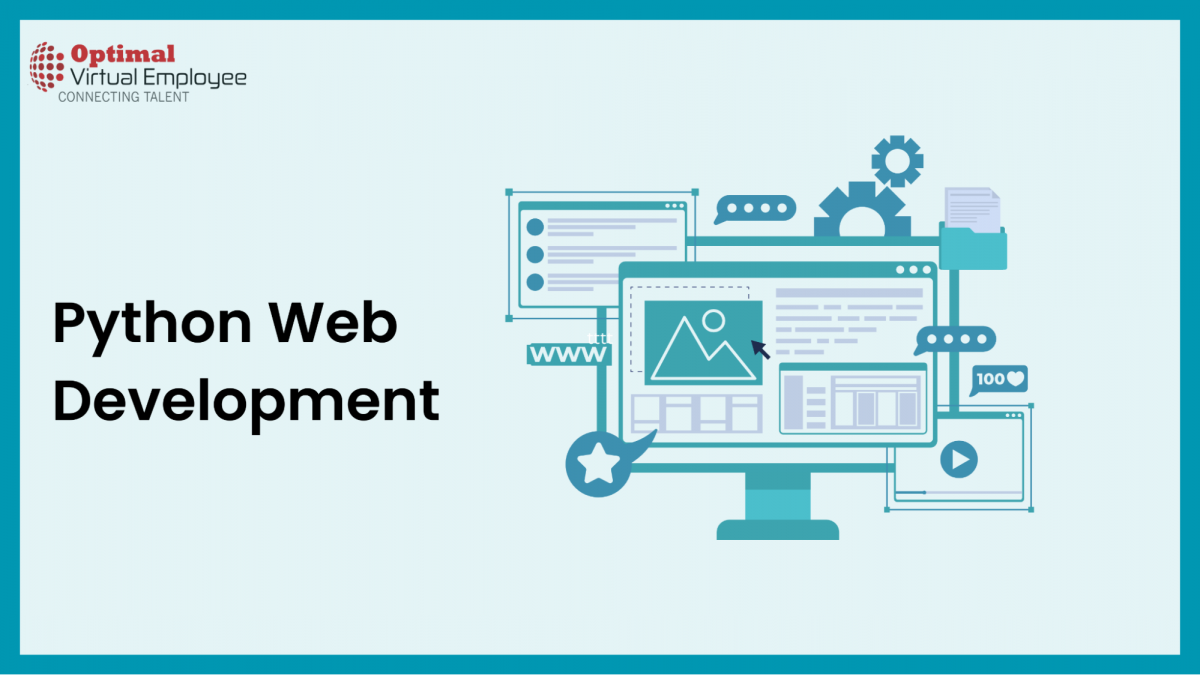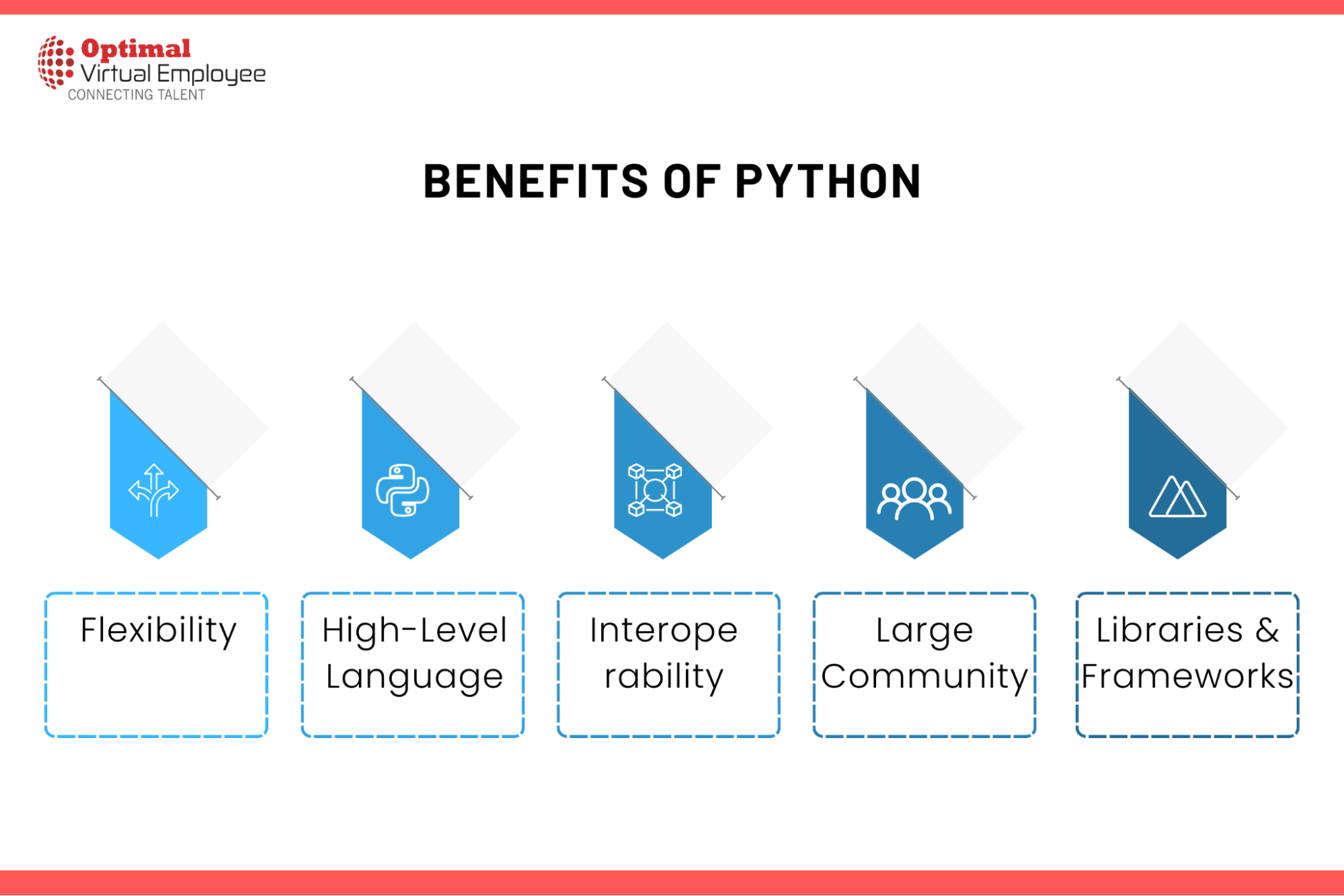Python has rapidly emerged as one of the most popular programming languages globally, and it’s not hard to see why. This incredibly versatile language finds applications in a multitude of domains, ranging from data analysis to game development. However, where Python truly excels is in the realm of web application development. With its user-friendly and straightforward nature, Python has become the top choice for crafting robust and scalable web-based applications.
In this blog post, we will delve into the significance of Python in web development. We’ll explore the key advantages it offers to developers and discuss how Python can be harnessed for creating web applications, whether they are simple or complex. This versatility makes Python an ideal language for developers of all skill levels who are keen to partake in web app development.
But why exactly is Python such a pivotal player in the world of web application development? Let’s take a closer look:
Versatility: Python stands out as an extraordinarily versatile language capable of serving various purposes, from web development to machine learning. This flexibility empowers developers to utilize Python for crafting a wide spectrum of web applications, ranging from straightforward websites to intricate, web-based systems.
Large Ecosystem: Python boasts an extensive ecosystem replete with libraries and frameworks designed to streamline the web app development journey. From Django to Flask, a plethora of popular Python frameworks exist, offering invaluable assistance to developers seeking to build robust and scalable web applications.
Readability: Python is renowned for its readability, a quality that greatly facilitates the task of developers when it comes to both writing and maintaining code. This attribute holds particular significance in the realm of web app development, where intricate systems can swiftly become challenging to oversee.
Ease of Use: Another standout feature of Python is its user-friendliness. This characteristic renders it an ideal choice for developers at all skill levels. In practical terms, this means even novices can swiftly acquire the skills needed to construct web applications using Python.
Python has firmly established itself as an indispensable tool in the domain of web app development. Whether you’re embarking on your programming journey or are a seasoned developer, Python stands ready to assist you in crafting resilient and scalable web applications tailored to your users’ needs.
Key Benefits of Python:

Now, let’s explore some of the key advantages of employing Python in app development:
Flexibility:
Python boasts exceptional flexibility, rendering it suitable for a wide array of web app development endeavors. It accommodates various programming paradigms, including object-oriented, functional, and procedural programming, making it adaptable for diverse use cases.
High-Level Language:
Python operates as a high-level language, delivering a substantial level of abstraction. This feature greatly expedites code creation for developers, a particularly advantageous trait in the fast-paced world of web app development, where swift time-to-market is of paramount importance.
Interoperability:
Python exhibits exceptional interoperability, enabling seamless integration with other programming languages. This versatility empowers developers to leverage Python alongside other programming languages in their web app development endeavors. This interoperability factor endows Python with remarkable flexibility and power in the realm of web app development.
Large Community:
Python enjoys the support of a thriving and sizable community of developers. This vibrant community ensures an abundance of resources available to assist developers who employ the language. These resources include comprehensive documentation, instructive tutorials, and active forums, all of which serve to help developers overcome challenges and acquire new techniques effectively.
Libraries and Frameworks:
Within the Python ecosystem, a rich array of libraries and frameworks exists, providing invaluable tools for expediting web application development. Notably, frameworks like Flask and Django, both widely embraced in the Python community, offer an array of features that streamline the web app development process.
Scalability:
Python is celebrated for its scalability, rendering it well-suited for the creation of large-scale web applications. This scalability is rooted in Python’s capability to handle substantial volumes of data and its support for distributed computing, making it an excellent choice for projects of varying size and complexity.
Portability:
Python demonstrates exceptional portability, being compatible with an extensive range of platforms, including Windows, Linux, and macOS. This inherent portability simplifies the development of web applications on diverse operating systems. Furthermore, it facilitates the deployment of web applications on various servers and cloud platforms, enhancing overall versatility in web app development.
Creating a Scalable and Resilient Web Application
Scalability:
The development of a scalable web application stands as a fundamental aspect of web app development, and Python provides an array of frameworks, including Flask and Django, that empower developers to construct resilient and scalable web applications. Let’s delve into the key features of these frameworks and understand how they facilitate the development of scalable web applications:
Flask:
Flask, characterized as a micro-framework, offers a spectrum of features tailored for web app development. Its lightweight and adaptable nature renders it an exceptional choice for small to medium-sized web applications. Flask incorporates functionalities such as URL routing, templating, and extensibility, streamlining the process for developers to swiftly construct web applications.
Django:
Django, in contrast, emerges as a full-stack web framework replete with an extensive set of features for web app development. It stands out as a robust and scalable framework well-suited for crafting large-scale web applications. Django encompasses capabilities like Object-Relational Mapping (ORM), URL routing, templating, and support for diverse databases, offering developers the tools required to efficiently build intricate web applications with ease.
Key Features of Flask and Django
ORM (Object-Relational Mapping):
Both Flask and Django encompass the crucial feature of Object-Relational Mapping (ORM). ORM simplifies the interaction between developers and databases, an indispensable aspect of web app development. It empowers developers to write Python code, seamlessly translated into SQL queries, streamlining database operations.
Template Engine:
Flask and Django both provide a template engine, facilitating the creation and management of HTML templates. This functionality proves indispensable in web app development, enabling developers to craft dynamic and responsive web applications with efficiency.
Scalability:
Both Flask and Django stand out as scalable frameworks, well-equipped to handle substantial traffic and data loads. They incorporate features such as support for distributed computing, caching mechanisms, and load balancing, empowering developers to construct web applications capable of managing high levels of user traffic.
In summary, Flask and Django rank among the most popular Python frameworks for web app development. They offer an array of features that expedite the creation of robust and scalable web applications. Whether you’re embarking on a small-scale project or tackling a large-scale endeavor, Flask and Django are valuable tools that enable developers to construct web applications swiftly and effectively.
Robustness:
Python presents a diverse selection of potent frameworks tailored for web app development, streamlining the development process while ensuring the reliability and scalability of your application. In this context, we’ll delve deeper into two of the most prominent Python frameworks for web app development: Pyramid and Bottle.
Conclusion
Python stands as a potent language for web application development, providing developers with an extensive array of frameworks, tools, and libraries. These resources empower developers to construct resilient and scalable web applications, regardless of whether the project involves a straightforward web page or a complex web application. Python’s adaptability, vast ecosystem, and user-friendly syntax collectively make it an optimal selection for web development. When armed with the appropriate tools and frameworks, developers can craft web applications that exhibit reliability, scalability, and ease of maintenance.










